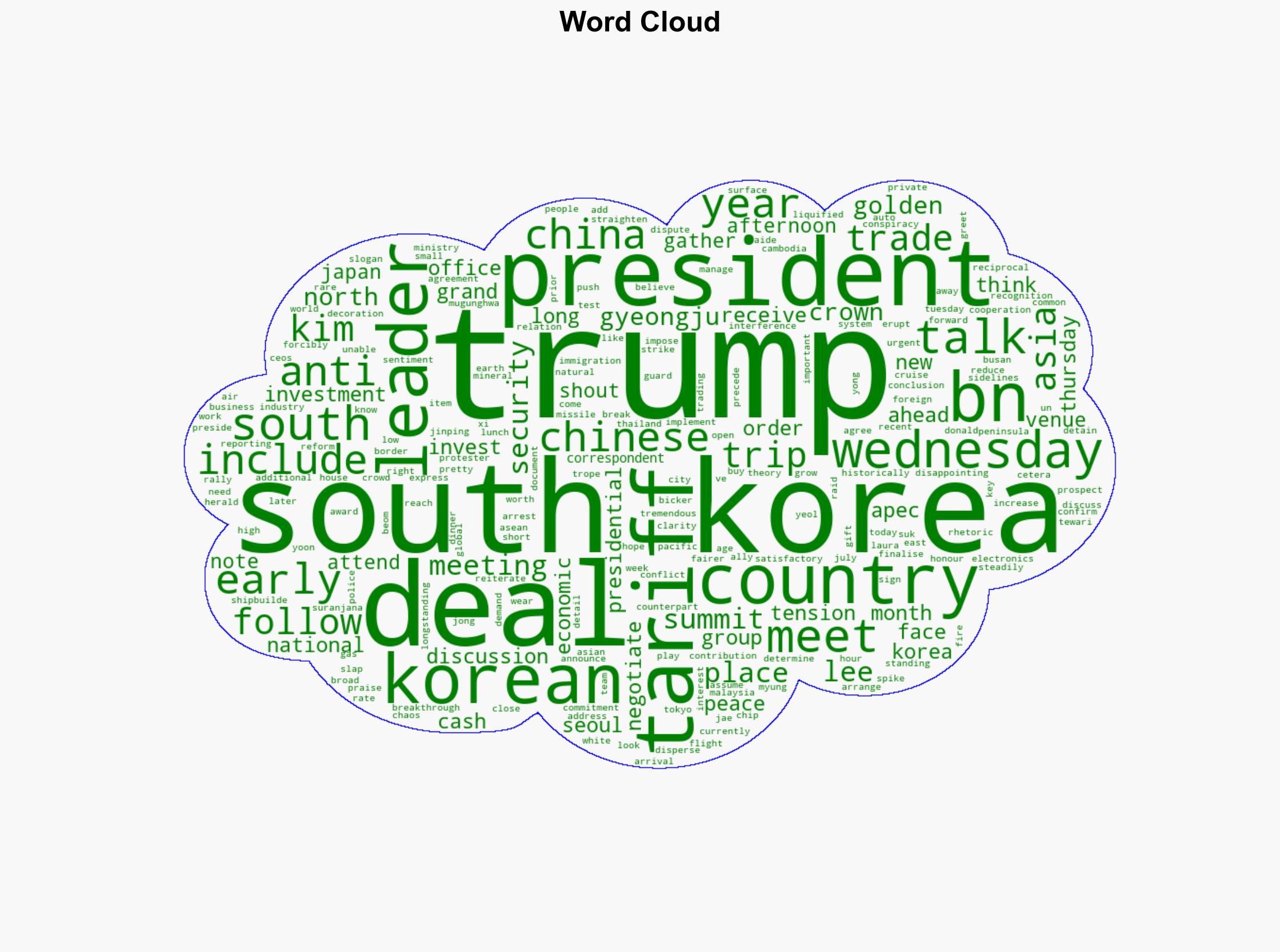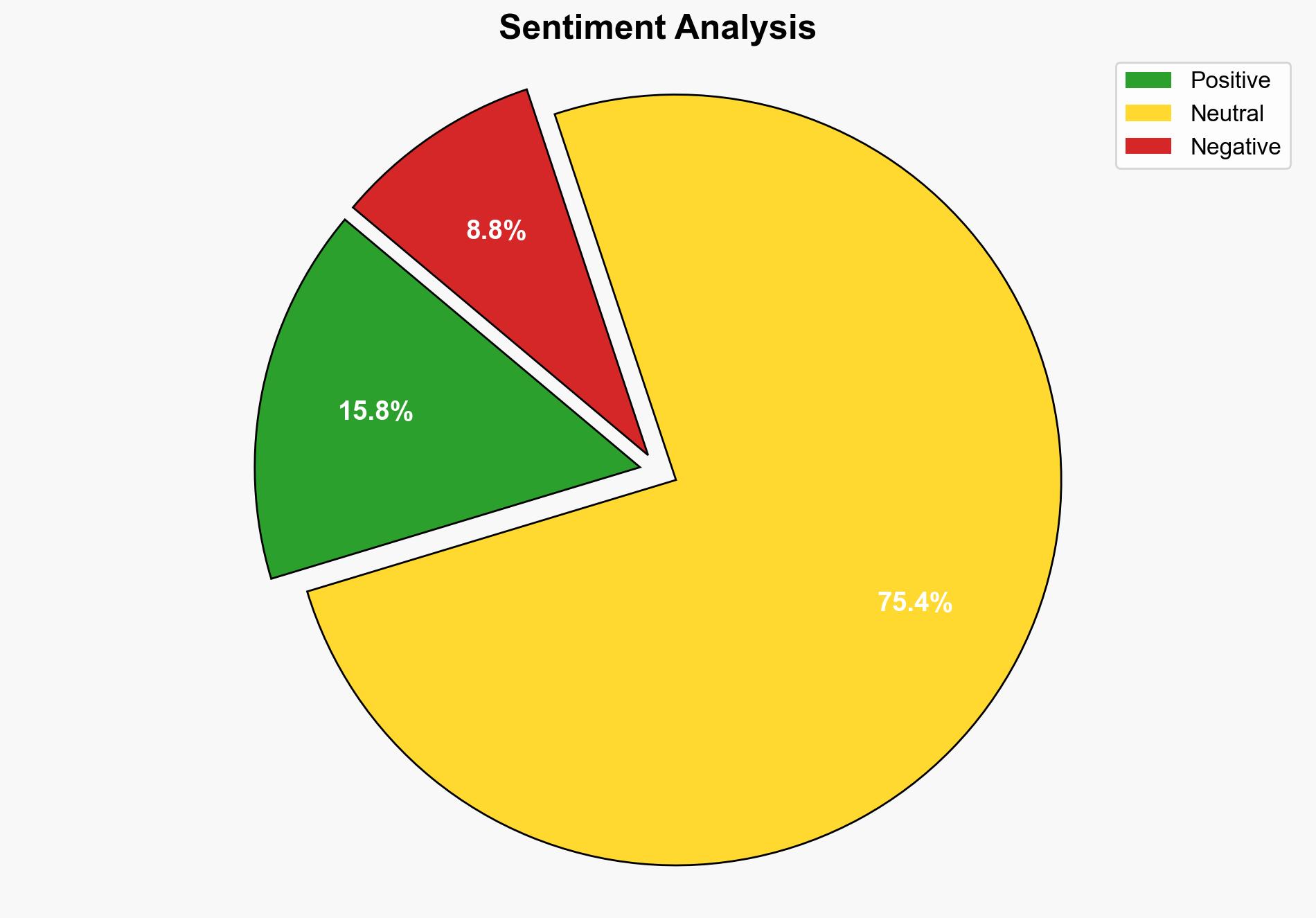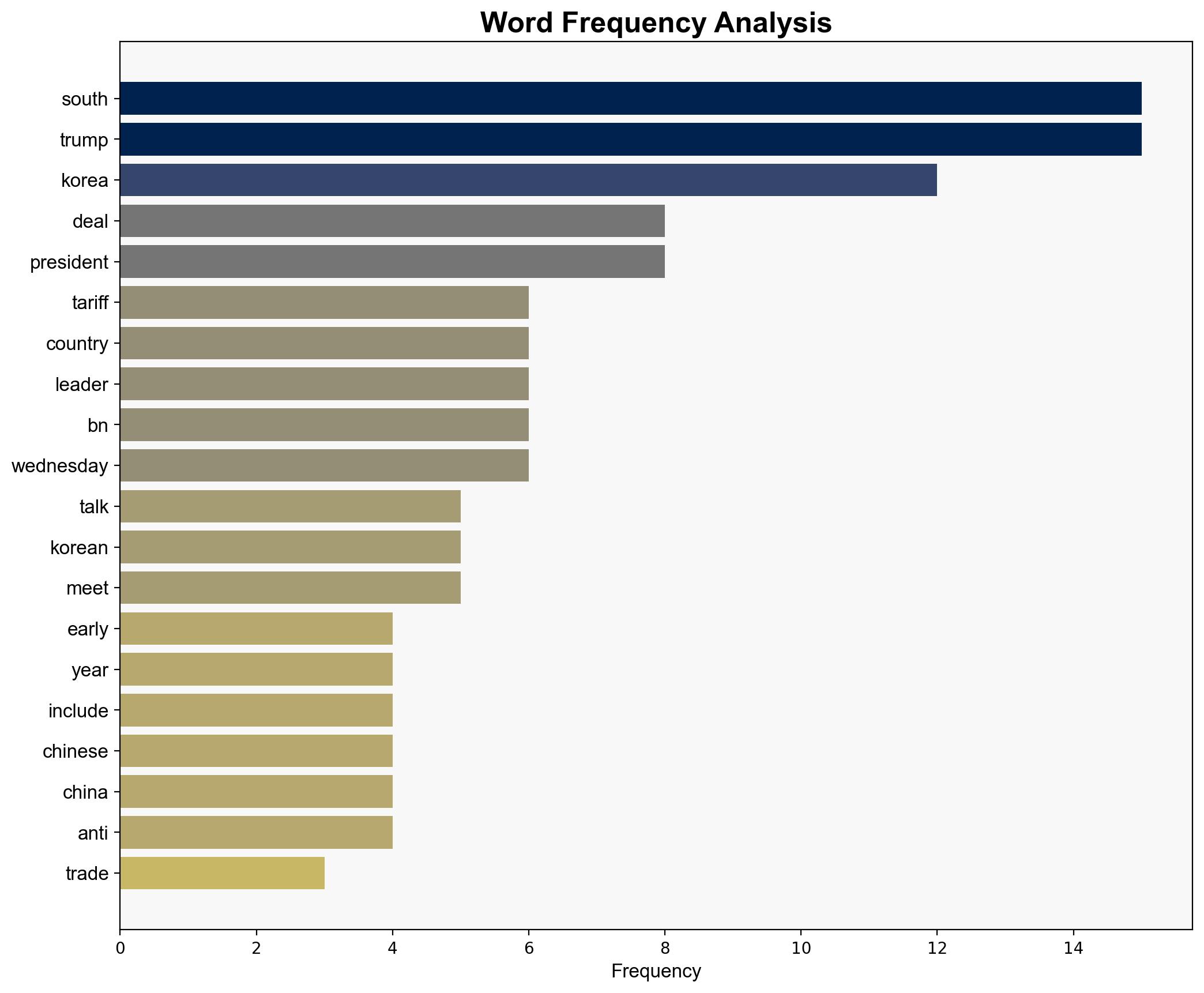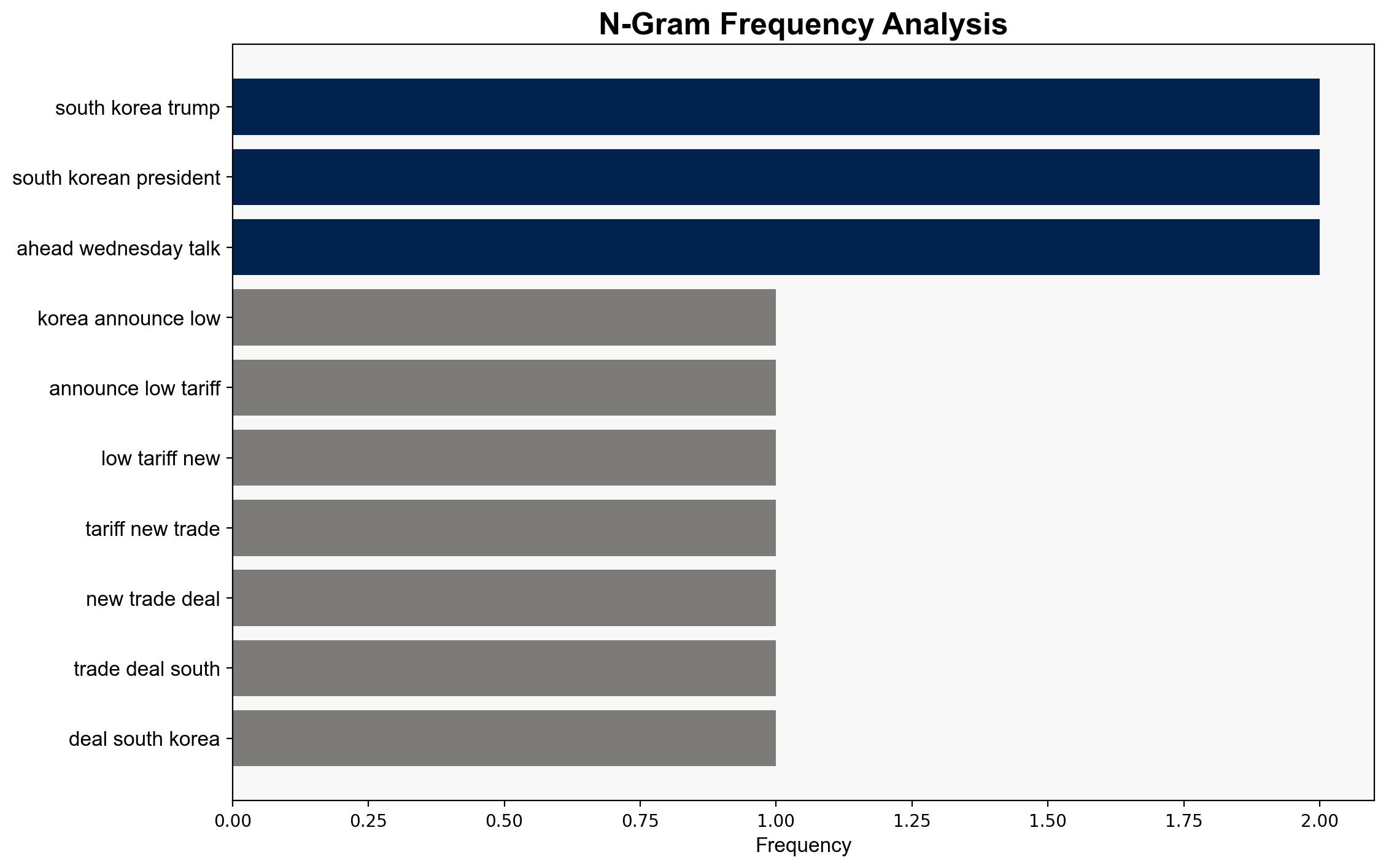S Korea announces lowering of some tariffs as part of new US trade deal – BBC News
Published on: 2025-10-29
Intelligence Report: S Korea announces lowering of some tariffs as part of new US trade deal – BBC News
1. BLUF (Bottom Line Up Front)
The strategic judgment suggests that South Korea’s decision to lower tariffs as part of a new trade deal with the US is primarily aimed at strengthening economic ties and addressing trade imbalances. The most supported hypothesis is that this move is a strategic economic decision to counteract previous tensions and align more closely with US economic policies. Confidence level: Moderate. Recommended action: Monitor subsequent trade negotiations and economic indicators for shifts in regional alliances and economic dependencies.
2. Competing Hypotheses
1. **Economic Realignment Hypothesis**: South Korea’s tariff reduction is a strategic move to realign its economic policies with the US, aiming to mitigate previous trade tensions and secure economic benefits, such as increased US investments and access to US markets.
2. **Geopolitical Maneuvering Hypothesis**: The tariff reduction is part of a broader geopolitical strategy to strengthen South Korea’s alliance with the US, especially in light of regional tensions with China and North Korea, using economic concessions to bolster security ties.
Using ACH 2.0, the Economic Realignment Hypothesis is better supported due to the emphasis on economic investments and trade benefits highlighted in the intelligence, whereas the geopolitical implications are less explicitly detailed.
3. Key Assumptions and Red Flags
– **Assumptions**: It is assumed that the tariff reduction will lead to increased US investments and improved trade relations. Another assumption is that South Korea’s actions are primarily economically motivated rather than politically.
– **Red Flags**: The intelligence lacks detailed information on the specific industries affected by the tariff changes and the long-term economic impacts. There is also an absence of explicit statements from South Korean officials confirming the primary motivations behind the deal.
4. Implications and Strategic Risks
– **Economic Implications**: Potential for increased US investments in South Korea, leading to economic growth. However, there is a risk of over-dependence on US economic policies.
– **Geopolitical Risks**: The move might strain South Korea’s relations with China, potentially leading to economic retaliation or increased regional tensions.
– **Cyber and Psychological Dimensions**: Increased economic ties with the US could make South Korea a target for cyber espionage aimed at disrupting trade negotiations or stealing sensitive economic data.
5. Recommendations and Outlook
- Monitor US-South Korea trade negotiations closely for any shifts in policy or economic dependencies.
- Engage in diplomatic dialogues with China to mitigate potential tensions arising from the trade deal.
- Scenario-based projections:
- Best Case: Strengthened US-South Korea economic ties lead to regional stability and economic growth.
- Worst Case: Economic retaliation from China leads to regional economic instability.
- Most Likely: Incremental improvements in US-South Korea trade relations with manageable geopolitical tensions.
6. Key Individuals and Entities
– Kim Yong Beom
– Donald Trump
– Lee Jae Myung
– Xi Jinping
– Yoon Suk Yeol
7. Thematic Tags
national security threats, economic policy, regional focus, US-South Korea relations




